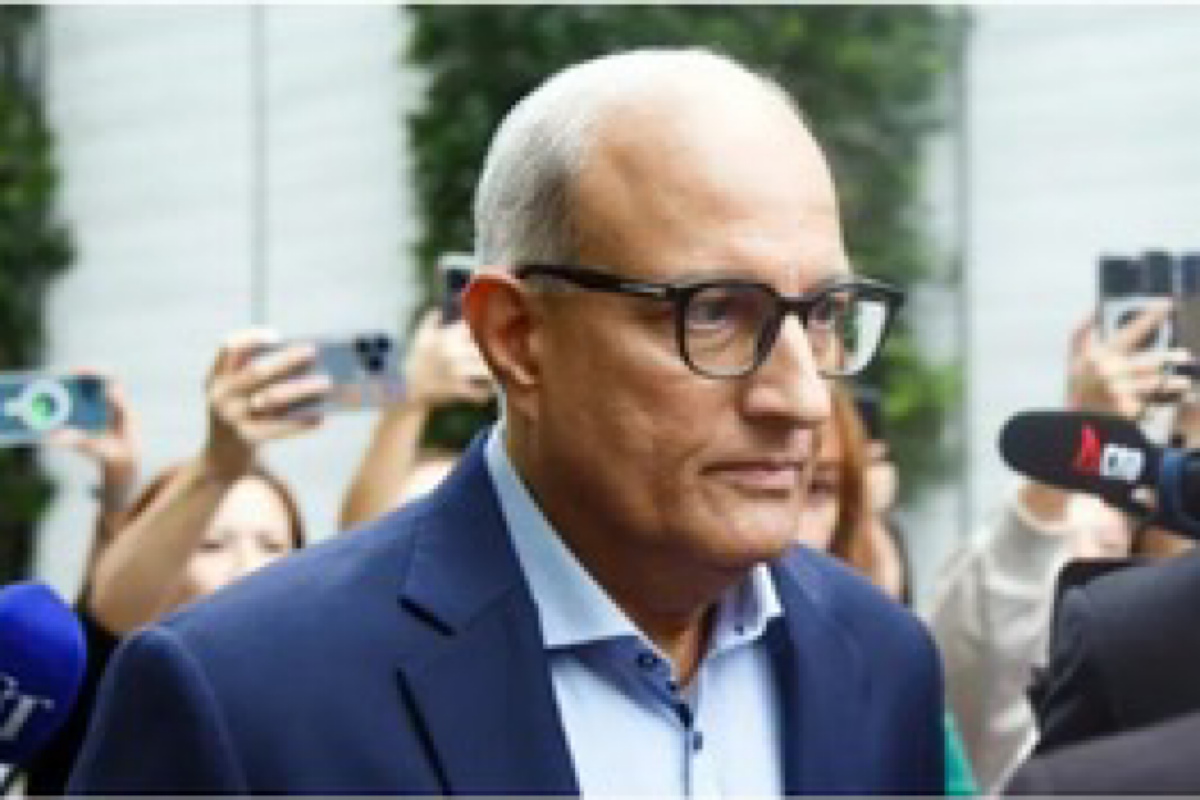Aviation ministry pushes for better air links to Europe, Asia from city
The ministry of civil aviation has prioritised Kolkata airport in a major push to enhance international air connectivity, facilitating better access to Europe and Asia.
The trio belongs to the ruling People’s Action Party (PAP), which has been in power since 1959 and holds a sizeable majority in the country’s Parliament.

Singapore's top 3 ministers accused of graft in 2023 -- all of Indian-origin (Photo:IANS)
Lauded as the least corrupt country in Asia, Singapore saw three Indian-origin Ministers face graft charges in the year 2023 alone — the same year an economist of Indian descent took over the reins of the city-state as its ninth President.
While two of them — Vivian Balakrishnan and K. Shanmugam were cleared of all charges as the year drew to a close, S. Iswaran’s pre-trial conference is scheduled for March 1, and he is presently out on bail of SG$800,000.
Advertisement
The trio belongs to the ruling People’s Action Party (PAP), which has been in power since 1959 and holds a sizeable majority in the country’s Parliament.
Advertisement
With the next election due in November 2025, political experts say that the graft allegations could hit PAP’s support base in a country that is ranked the fifth-least corrupt country in Transparency International’s latest Corruption Perceptions Index.
Over the years, the government has justified seven-figure ministerial paychecks to keep out corruption.
According to a Bloomberg report, the country’s public officers are among the world’s best-paid, with Prime Minister Lee Hsien Loong earning a total compensation of about S$2.2 million ($1.7 million) per annum.
The country witnessed its last corruption case in the year 1986, which saw Teh Cheang Wan, a national development minister, being probed for allegedly accepting kickbacks.
The case of Balakrishnan and Shanmugam
Home Affairs and Law Minister Shanmugam and Foreign Minister Balakrishnan were accused of corruption relating to the rental of their colonial-era bungalows in the city-state.
The 26 and 31 Ridout Road are two 100-year-old bungalows in the Ridout Park area that have been rented to the two Ministers.
In May last year, opposition Reform Party Chief Kenneth Jeyaretnam questioned if the two Ministers were “paying less than the fair market value” for their rental of the two-state properties.
It was debated in the Parliament in July, following a Corrupt Practices Investigation Bureau (CPIB) investigation and a review by senior Minister Teo Chee Hean.
The CPIB said in its report that it did not find any wrongdoing on the part of Shanmugam and Balakrishnan, while Teo’s review found that processes had been followed.
Even as they were cleared, Lee Hsien Yang, the brother of Singapore’s Prime Minister, wrote posts on Facebook in July accusing them of corruption over the rental of their bungalows.
Yang accused the ministers of acting for personal gains by having the Singapore Land Authority (SLA) give them preferential treatment by illegally felling trees without approval, and also having SLA pay for renovations to the bungalows.
The ministers sued Yang, currently in self-exile overseas, for defamation with the judgment being granted in their favour.
The case of ‘innocent’ Iswaran
As per a New York Times report, Transport Minister S. Iswaran was among the 4G, or fourth generation, leaders who were considered with Prime Minister Lee hoping to step down, following PAP’s leadership transition within 10 months.
But Iswaran was arrested on July 11 last year in one of the most high-profile cases involving a minister in the Asian financial hub in nearly four decades.
The 61-year-old faces 27 charges of offences in a corruption probe, which included receiving tickets from Ong Beng Seng, who is credited with bringing F1 racing to Singapore.
While pleading not guilty to all the charges, Iswaran said he was ‘innocent’ and resigned from the Cabinet, as a Member of Parliament and as a member of the ruling PAP.
According to the CPIB, Iswaran has allegedly obtained kickbacks worth SG$384,340.98 ($286,181) from Ong, partly to advance the property tycoon’s business interests.
These ranged from tickets to shows, private plane rides, hotel stays, football matches, and various editions of the Singapore F1 Grand Prix.
If convicted, he could be fined up to SG$100,000 or face seven years in prison.
Indian diaspora in Singapore
Indians make up around nine per cent of the Singapore population and as of 2024, their estimated population is seven lakh.
According to the latest 2020 Census, 57.3 per cent of Singapore’s Indian population declared themselves as Hindus, mostly Tamils.
Excluding Iswaran, who recently resigned, the present cabinet now includes four Indian-origin ministers — Foreign Minister Vivian Balakrishnan, Law and Home Affairs Minister K. Shanmugam, and Indranee Rajah, serving as Second Minister for Finance as well as Second Minister for National Development.
Janil Puthucheary serves as a senior Minister of State for the Ministries of Transport and Communications and Information.
Pritam Singh, the Secretary-General of the Workers’ Party, the largest opposition party in Singapore, is also of Indian descent.
The penalty for the corrupt
In Singapore, graft cases are mostly handled by the CPIB, or Corrupt Practices Investigation Bureau, a government agency that investigates and prosecutes corruption in the public and private sectors.
The agency reports directly to the Prime Minister, enabling the CPIB to operate independently.
A person convicted for corruption offences under either Section 5 or 6 of the Prevention of Corruption Act faces a fine not exceeding SG$100,000, or a custodial sentence of up to five years (or both) for each charge for which he is convicted.
Advertisement